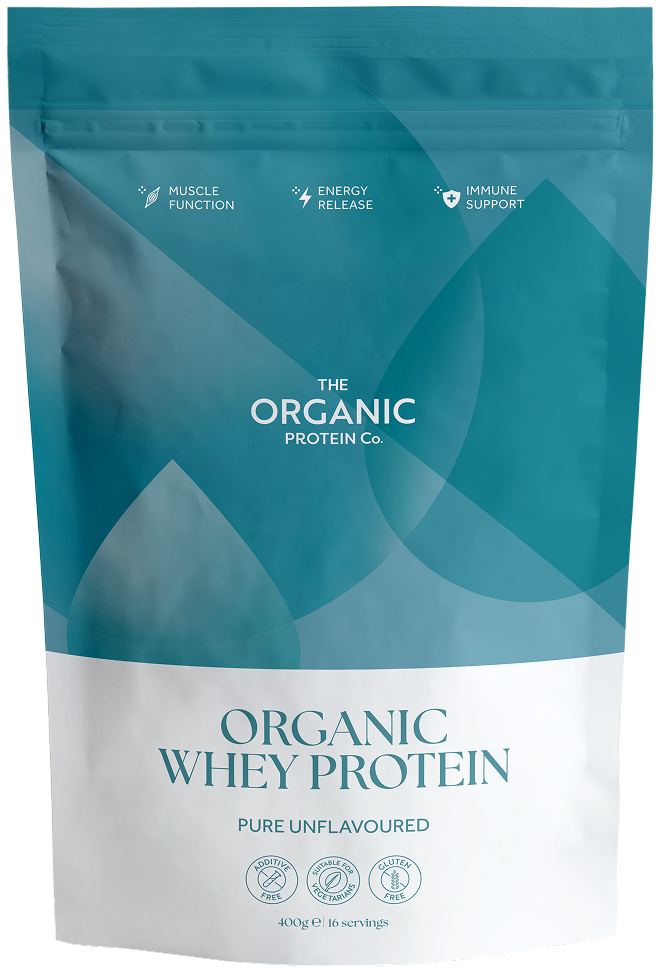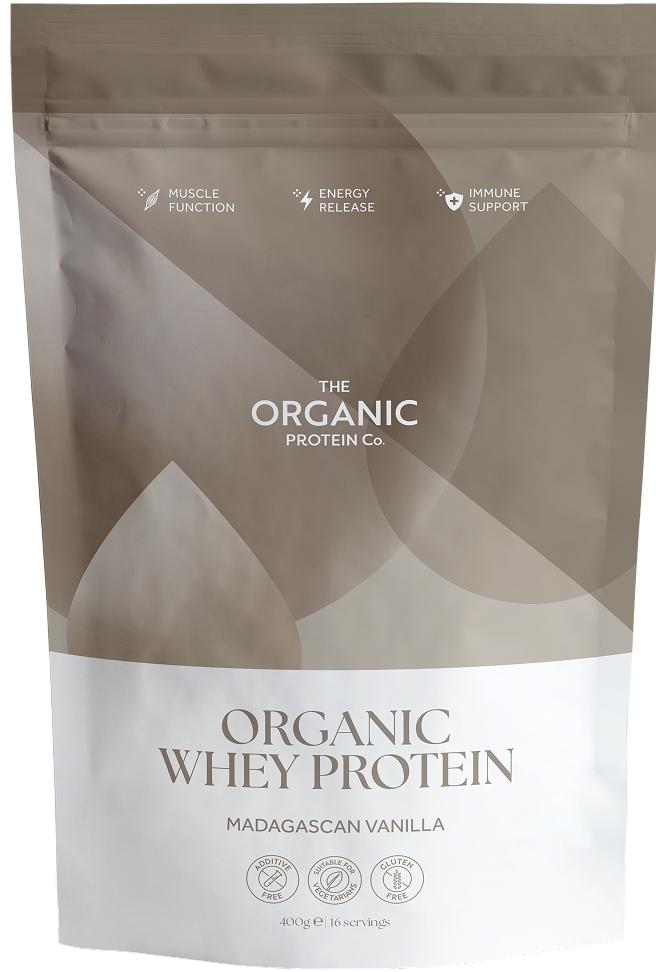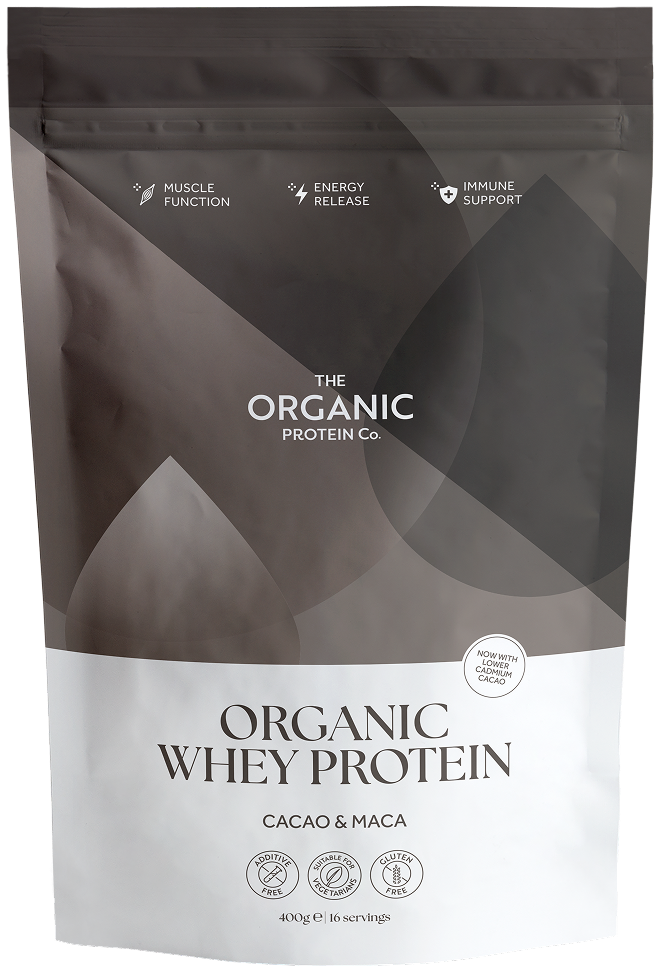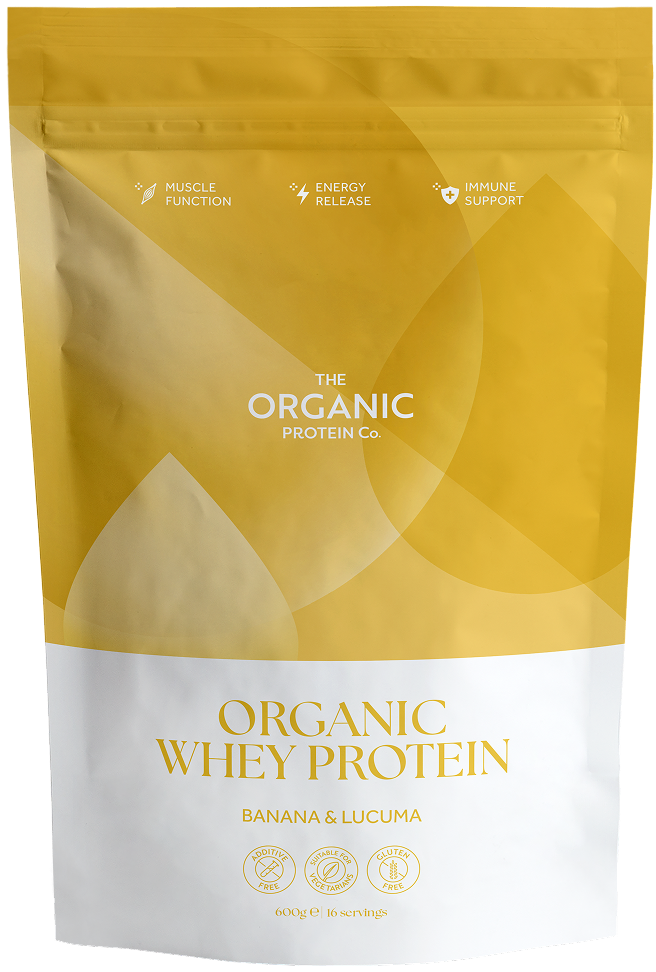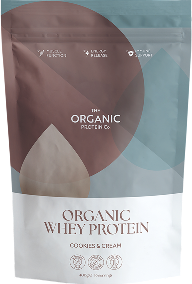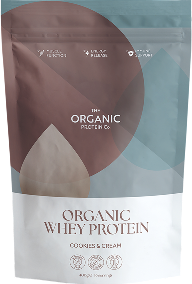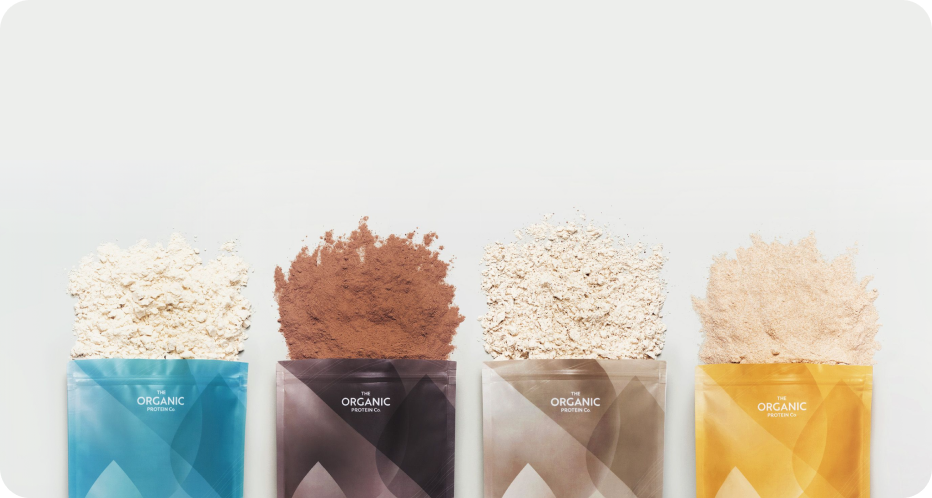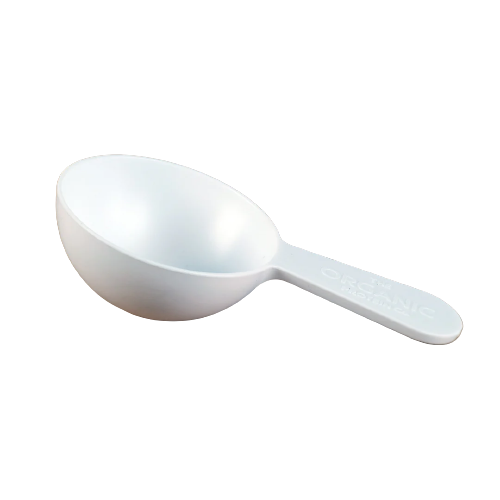Whey protein powder is a versatile and valuable addition to diverse lifestyles, catering to various health and wellness goals. Its easy digestibility and diverse range of recipe applications make it an invaluable supplement for those keen on maintaining a balanced diet, supporting muscle health and enhancing overall well-being.
Whether the aim is to ensure steady energy levels throughout a busy day or to support the body's nutritional needs as it ages, understanding when to incorporate whey protein into your diet is key to maximising its potential.
Since 2014, our organic whey protein has helped over 25,000 protein lovers reach their health and wellness goals. With this in mind, below we explore when - and how - you can incorporate whey protein powder into your daily routine for maximum effect.
What’s the fuss with whey?
A key player in the world of health and nutrition, whey protein is derived from cow’s milk, typically during the cheese-making process. It's recognised for its high nutritional value and comes in three different forms, each with unique qualities and benefits.
-
Whey protein concentrate (WPC): WPC typically contains around 70-80% protein. This form retains more of the naturally occurring fats and lactose found in milk, making it a well-rounded choice.
-
Whey protein isolate (WPI): WPI undergoes further processing to remove most of the fat and lactose. This results in a higher protein content, usually above 90%, making it a preferred option for those looking to reduce their intake of fats and lactose.
- Whey protein hydrolysate (WPH): Also known as hydrolysed whey, WPH is essentially a pre-digested protein. This form allows for quicker absorption by the body, making it an efficient protein source.

Whey protein has been spotlighted by the health and wellness industry owing to its rich content of all nine essential amino acids and three branched-chain amino acids - importantly, in a form that is rapidly absorbed by our bodies. These amino acids support muscle maintenance, contribute to a feeling of fullness and aid in overall well-being, leaving you feeling tip-top and ready to take on what the day throws at you.
Adding whey protein powder to your diet is a fantastic way to improve your nutritional intake and achieve your health goals, but when is the best time to add it to your routine?
Protein intake on your terms
The versatility of whey protein powder lies in its remarkable adaptability to various dietary goals and daily routines, making it a worthy companion for anyone, no matter their unique health plans.
Whether you’re looking to maintain muscle, lose weight or simply boost your overall wellness, the timing of your whey protein intake can be easily adjusted to suit your specific needs. This flexibility allows you to use whey protein as a tool to fill nutritional gaps in your diet, ensuring that your protein intake aligns with your overall health pursuits.
Let’s explore how different times of the day can impact the effects of your whey protein intake:
Starting your day with whey
A morning scoop of whey protein offers several benefits for weight management, as well as supporting your muscle health and overall wellness. Starting your day with a protein-rich breakfast can:
-
Boost your metabolism: A protein-rich breakfast, including whey protein, can stimulate your metabolism, aiding in more efficient calorie burning throughout the day. This is particularly beneficial for those leading busy lifestyles, providing a steady source of energy and reducing the need for frequent snacking. High-protein breakfasts can increase the thermic effect of food, which is the energy expended during digestion, leading to more calories burned throughout the day.
-
Increase satiety: If your goal is weight loss, whey protein's role in promoting satiety is another key aspect of its morning benefits. By feeling fuller for longer periods, the likelihood of reaching for impromptu snacks can be reduced.
- Be more versatile: Whey protein can be easily added to various breakfast options like smoothies, oats or yoghurt, making it a convenient and popular choice for both quick and leisurely morning routines. Each of these options allows you to start your day with a balanced intake of nutrients, setting a healthy precedent for the rest of the day.

A post-activity boost
Drinking a whey protein shake or tucking into a protein-packed snack after daily activities, such as walking or gardening, offers several health benefits, particularly for maintaining muscle health and general well-being:
-
Essential amino acid supply: After any activity, whey protein provides essential amino acids that are crucial for maintaining muscle health. This is especially important as the body’s ability to maintain muscle can change with age. Supplying your body with these vital building blocks can help you retain your vitality and maximise your movement.
-
Promoting functional ability: By supporting muscle health, whey protein intake after increased activity can help in maintaining mobility and functional ability. This is key to preserving independence and quality of life at any stage, but particularly in seniors.
- Nutritional support: With a clear nutritional profile, whey protein powder can be an effective and convenient way to ensure you’re getting enough protein after increased activity, with serving sizes for guidance.

Winding down with whey protein
After a busy day of work or socialising, your nutrition choices matter. Including whey protein in your evening routine can help regularise your protein intake to align with your wellness journey. This approach tends to have its pros and cons - some things to consider include:
-
Nutritional balance: For those who've had an active day or perhaps missed out on sufficient protein, an evening dose of whey can help balance your nutritional intake, listening to your body’s needs.
-
Weight management and metabolism: While evening protein intake isn't a direct shortcut to weight loss, it can complement a balanced diet. A study suggested a slight increase in metabolic rate the next day following nighttime casein protein consumption but found that consuming specifically whey protein may lower fat oxidation, the process by which the body breaks down fats.
-
Sleep quality and digestion: The type of protein consumed before bed can affect sleep quality and digestion. Whey protein, being rapidly digested, might not be as effective as casein before bed. Eating before bed, including protein consumption, can affect circadian rhythms and metabolic processes.
- Muscle support in later years: The findings of a study showed that consuming protein before sleep can aid in maintaining muscle health, a crucial factor for ageing individuals. The ability of the body to effectively digest and use protein during sleep points towards a potential strategy for supporting muscle health as we age.

Adding whey protein into your routine
As we’ve seen, the versatility of whey protein means it can be integrated into a variety of dietary routines, at various stages in the day. While the timing of your whey protein intake can have both pros and cons, below are some tips to help you determine the best timing for you and your lifestyle:
1. Identify your primary goal
Your primary goal will be one of the main factors in deciding the best time to take whey protein. Are you aiming for weight management, muscle maintenance or overall health? For weight management, mornings are ideal. For muscle maintenance, consider post-activity.
2. Assess your daily schedule
Look at your typical day. When are you most active? When do you feel you need more energy? If mornings are hectic, a protein-rich breakfast can provide sustained energy. If afternoons are more active, consider a midday protein boost.
3. Consider digestion and sleep quality
If you're considering whey protein in the evening, monitor how it affects your sleep and digestion. Some people may find a light whey protein snack beneficial before bed, while others might experience disrupted sleep.
4. Experiment with different timings
Try whey protein at different times and note how your body responds. You might find that a morning shake works best for you to get into a routine, while a post-activity shake provides the greatest benefits for your health goals.
5. Listen to your body
Ultimately, your body will give you cues. If you feel more energised and satisfied after a protein shake and start to notice you’re reaching your personal health goals, that’s a good sign you’re timing your intake right.
Choosing the right whey protein powder
No matter when you decide to incorporate whey protein powder into your daily routine, selecting the right products is essential to align with your health goals and personal values.
For a bit of inspiration no matter the time of day, have a browse through our recipe blog. From protein pancakes to start your day right to protein ice cream for an end-of-day boost, there are loads of options for incorporating whey protein into your daily routine.

